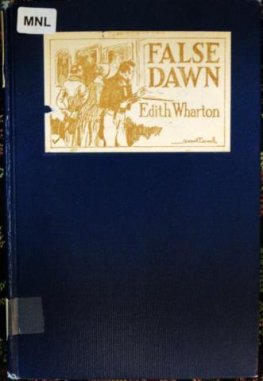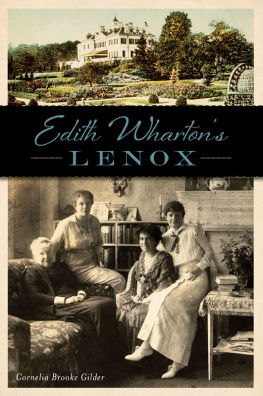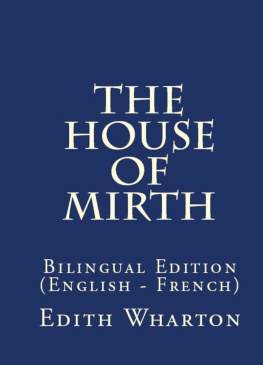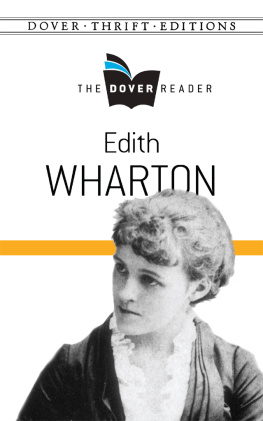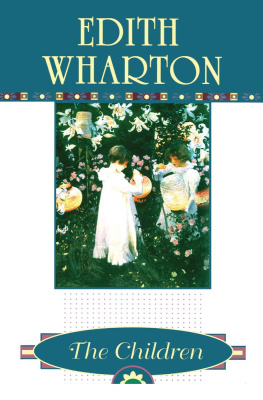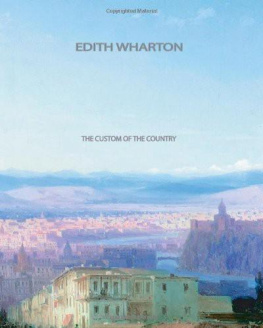Claudine Lesage - Edith Wharton in France
Here you can read online Claudine Lesage - Edith Wharton in France full text of the book (entire story) in english for free. Download pdf and epub, get meaning, cover and reviews about this ebook. year: 2018, publisher: Prospecta Press, genre: Non-fiction / History. Description of the work, (preface) as well as reviews are available. Best literature library LitArk.com created for fans of good reading and offers a wide selection of genres:
Romance novel
Science fiction
Adventure
Detective
Science
History
Home and family
Prose
Art
Politics
Computer
Non-fiction
Religion
Business
Children
Humor
Choose a favorite category and find really read worthwhile books. Enjoy immersion in the world of imagination, feel the emotions of the characters or learn something new for yourself, make an fascinating discovery.

- Book:Edith Wharton in France
- Author:
- Publisher:Prospecta Press
- Genre:
- Year:2018
- Rating:5 / 5
- Favourites:Add to favourites
- Your mark:
- 100
- 1
- 2
- 3
- 4
- 5
Edith Wharton in France: summary, description and annotation
We offer to read an annotation, description, summary or preface (depends on what the author of the book "Edith Wharton in France" wrote himself). If you haven't found the necessary information about the book — write in the comments, we will try to find it.
Edith Wharton in France — read online for free the complete book (whole text) full work
Below is the text of the book, divided by pages. System saving the place of the last page read, allows you to conveniently read the book "Edith Wharton in France" online for free, without having to search again every time where you left off. Put a bookmark, and you can go to the page where you finished reading at any time.
Font size:
Interval:
Bookmark:
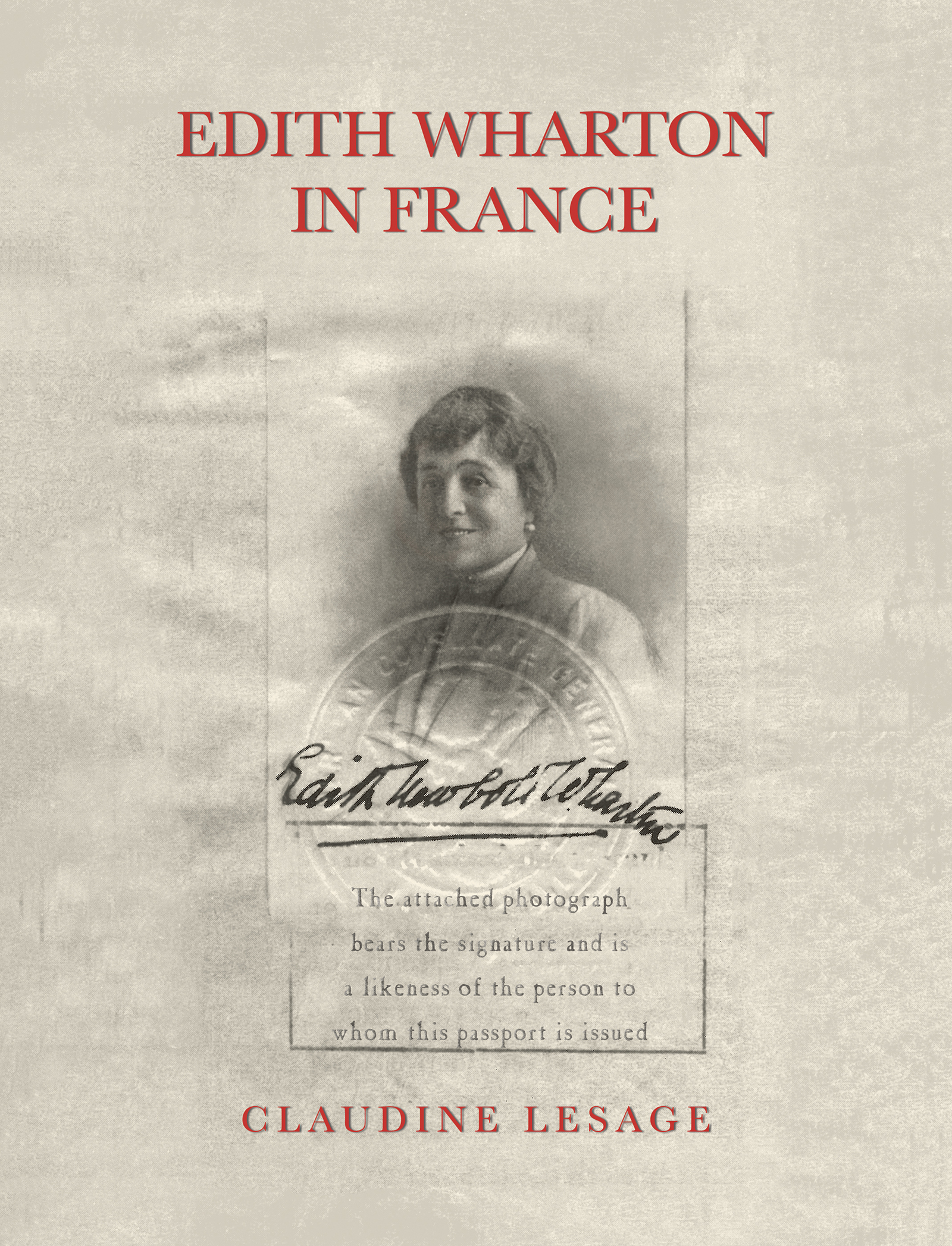

Dedicated to Jean-Claude Lesage, Claudines husband, for his patience and generosity of spirit in bringing this work to completion.
Never have I felt as much as I do today just how much I love France and my French friends. It breaks my heart not to be able to prove it by rushing home to Paris.
Edith Wharton to Lon Blugou, Tring, England, September 8, 1914
I first met Claudine Lesage in 2011 on a trip to Hyres, and was struck by her enthusiasm for Edith Wharton, which crossed the divides of language and culture. Throughout her career, Claudine advocated for a greater appreciation of Wharton among the French, and for more study among English-speaking scholars of Whartons French years. This manuscript, written through Claudines final illness, arose from her fierce determination to finish her story of Edith Wharton in France.
Using previously unexamined and untranslated French sources, Claudine has illuminated the intertwined characters and important relationships of Whartons French life. The bulk of the new material comes from the daybooks of Paul and Minnie Bourget; Whartons letters (in French) to Lon Blugou; and the authors personal research in Hyres. Highlights include letters used in Whartons divorce proceedings and a mysterious autobiographical essay written by Whartons lover Morton Fullerton. Most significantly, Whartons friendship with Blugou, absent from most Wharton biographies, is, for the first time, fully recounted through their extensive intimate correspondence.
With her innate knowledge of French culture, Claudine was able to examine Whartons degree of success in penetrating the highest levels of French society. Initially skeptical of Whartons ability to become French, Claudines work ultimately portrays a woman who fashioned a French home of her own making; one who found a sense of belonging at her beloved Chteau Sainte-Claire.
In his Preface, Claudines husband, Jean-Claude Lesage, hails his wife as a literary archaeologist, who searched for answers in new and different places. Claudine, he said, had found Whartons spirit and soul in the gardens of the Chteau Sainte-Claire. For Claudines lifes work, and her passion, we are grateful. I have had the privilege of serving as editor of her nearly completed manuscript and have tried to remain faithful to her voice and vision for this book.
Susan Wissler, Executive Director, The Mount, Edith Whartons Home
Editors note: Since Claudines death in 2013, some clarity has been lost on her archival material. Despite our efforts, some citations, regrettably, are incomplete or unconfirmed.
Although I was not the author of this research on Edith Wharton, I was the witness, and I would simply like to explain here the origin of my wifes passion for the American novelist.
The motive for ones interest sometimes depends on fortuitous circumstances. We regularly passed our summers in the town of Hyres, Provence, and our accommodations on the rue Edith Wharton, situated at the entrance of the medieval city, made it so that the American novelist became a center of interest that never ceased. This was the starting point of the meeting between Claudine Lesage and Madame Wharton.
Our walks led us through the winding streets of the old town to the villa Sainte-Claire, where Wharton once lived. We would pass the Church of St. Paul and its belvedere, to the shaded benches of the villas terrace to enjoy the vista of the les dOr drowned in the summer mist. It was a haven of serenity away from the crowds of bathers where one was inclined to whisper so as not to disturb the peacefulness of the place.
Claudine was fascinated by this American woman who had devoted herself to a place then wild and uncultivated, who had acquired an estate that stood at the walls of the old castle, and, with the help of an armada of gardeners, had created a vast Mediterranean garden. When Claudine walked the grounds, she was acutely aware of the imprint of its previous owner; a presence still felt floating on the hillside and among the plantingsthe soul of Mrs. Wharton. Could she hope to meet a few people who may have known the American?
To gain a more intimate knowledge of the novelists work, Claudine included Edith Wharton in her Anglo-American literature course at the University of Picardie in Amiens where she taught. Her previous study on Joseph Conrads youth in Provence had already familiarized Claudine with Hyres, with its institutions and academics. Her discovery of the manuscript of The Cruise of the Vanadis at the municipal library further stoked her interest in Wharton.
Claudine was a field woman, an archaeologist of literature, who had no equal. She would dig up source texts, reading the strata of their creation, finding answers to her questions. Other meticulously kept source materials were rich in discoveries: of Lon Blugou, a scholar and tutor of the upper-class families of the Faubourg Saint-Germain who frequently corresponded with the novelist while she lived in Paris. Then there were those of the writer Paul Bourget and his wife, Minnie, owners of Le Plantier, an estate on the hill of Costebelle in Hyres. They were among Ediths intimates, and Minnies diary is the echo of this beautiful friendship.
Thus a vision of Edith Whartons French years is offered, here, by a meticulous researcher, full of empathy for the American novelist, and in consideration of the French Background.
Claudine left us as she concluded the last pages of her manuscript, certain to the end of the importance of bringing the sum of her research to the American readers of Wharton. This project is being accomplished today through the friendship of Susan Wissler, Executive Director of The Mount, Edith Whartons Home, in Lenox, Massachuseets, and Jonas Dovydenas, who understood, always, the value of this research.
Let them be warmly thanked.
Jean-Claude Lesage
Many biographies have been written about Edith Whartons life. The first of these, Portrait of Edith Wharton (1947), by Percy Lubbock, was published not long after her death. The most acclaimed is R. W. B. Lewiss Edith Wharton: A Biography (1975), which won the Pulitzer Prize. More recently, Hermione Lees Edith Wharton (2007) sums up all its predecessors in an account teeming with accumulated details. However, the only traits shared by all the biographies published to this day are an English-speaking author and a distinctly Anglo-American point of viewa strangely persistent feature, considering that half of Edith Whartons life (if not more) was spent in Europe, and the better part of her adult years were lived in France. Of course, all of her biographers take this latter fact into account, but they do so from an outsiders perspective, so that anything involving France is presented without the deep knowledge that comes from belonging to a country from birth, a knowledge found in the very fiber of ones being. As her French friends would often attest, this flaw was also found in Edith when it came to her positions and feelings toward France.
Since so much has already been written, it follows that this attempt at a new biography need not start from scratch in the telling of her life, but rather, should approach it from a different angle: viewing matters from a French perspective and relying on many hitherto untapped resources still to be found in France. Thus, this authors approach has consisted first in locating all of the documentation that has been unknown or unavailable to English-language biographers by virtue of its very Frenchness.
Next pageFont size:
Interval:
Bookmark:
Similar books «Edith Wharton in France»
Look at similar books to Edith Wharton in France. We have selected literature similar in name and meaning in the hope of providing readers with more options to find new, interesting, not yet read works.
Discussion, reviews of the book Edith Wharton in France and just readers' own opinions. Leave your comments, write what you think about the work, its meaning or the main characters. Specify what exactly you liked and what you didn't like, and why you think so.

